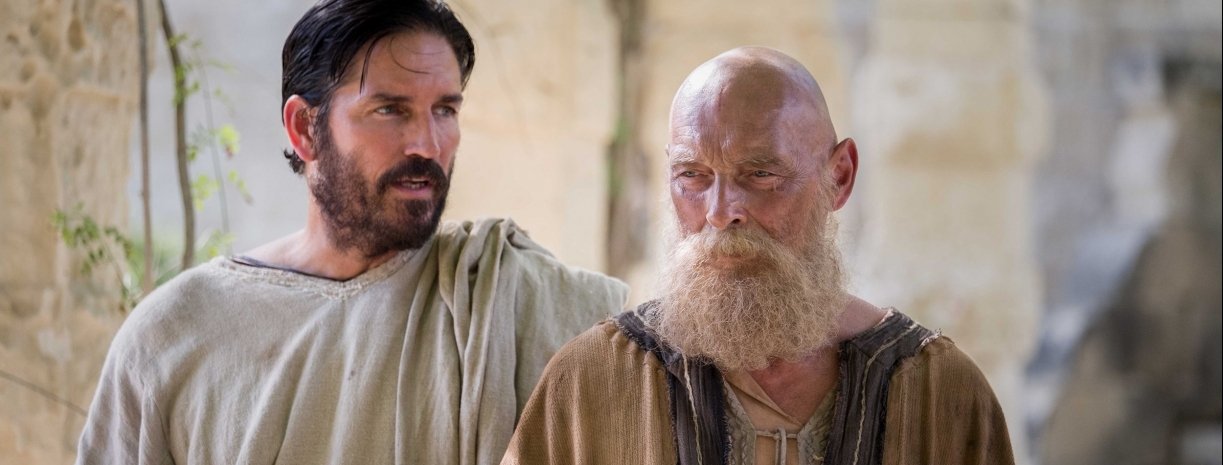Who else has seen the new movie Paul, Apostle of Christ yet? My wife and I saw it last Saturday morning (but still had to pay $9, ggrrrrrrhh). I was more impressed than I thought I would be. This is not a biography of Paul, but him in a particular time and place: Rome after the fire of 67 AD, during Nero’s persecution, in prison. They show occasional flashbacks to earlier parts of Paul’s life. The movie was definitely more intense than I expected, but not as intense as Mel Gibson’s The Passion of the Christ (2004). In this movie, Christians are being sent into the Coliseum to be martyred (which you don’t see directly) and being used as Roman torches (which you do see, hence the PG-13 rating…probably too intense for many preteens). Ironically, we sat watching it in lounge seating—maybe I shouldn’t complain about $9. The writer/director is Andrew Hyatt (b. 1982) who has done a few other faith-centered movies, but none that I have seen. I found no evidence that the Roma Downey & Mark Burnett group that produced The Bible TV mini-series (2013) had anything to do with the production of Paul, Apostle of Christ.
I did wish the movie focused more intently on justification—on Christ crucified for us. It leaned a bit more generically to spreading the love of Christ. Christ’s resurrection was definitely portrayed, but could have been emphasized more. The movie was peppered with Pauline quotes. The historical fiction specifics of Mamertine prison, Paul, Luke, Aquila, Priscilla, and the Christian “community” living in their home in Rome all seemed plausible to me, but I’m not a professional early church historian (I teach pastoral counseling at Concordia Seminary). Jim Caviezel and the other cast members seemed believable in their parts. I did like that Paul’s “thorn in the flesh” is portrayed as lingering PTSD issues from killing Christians prior to his conversion, and that the “community” living and hiding under this persecution was torn by whether or not they should retaliate.
If you’ve not seen it yet, you might have to wait until it comes out on video. According to the website, it is still in a few theaters around St. Louis. If you’ve seen it, what was your assessment? I write this blog not so much as a review, but as a place on concordiatheology.org to discuss in what ways (or not) we might be able to use this movie in our congregations to help people talk about Jesus, and his apostle Paul, and Christ’s body, the church. What do you think? Chime in below!


Leave a Reply
You must be logged in to post a comment.